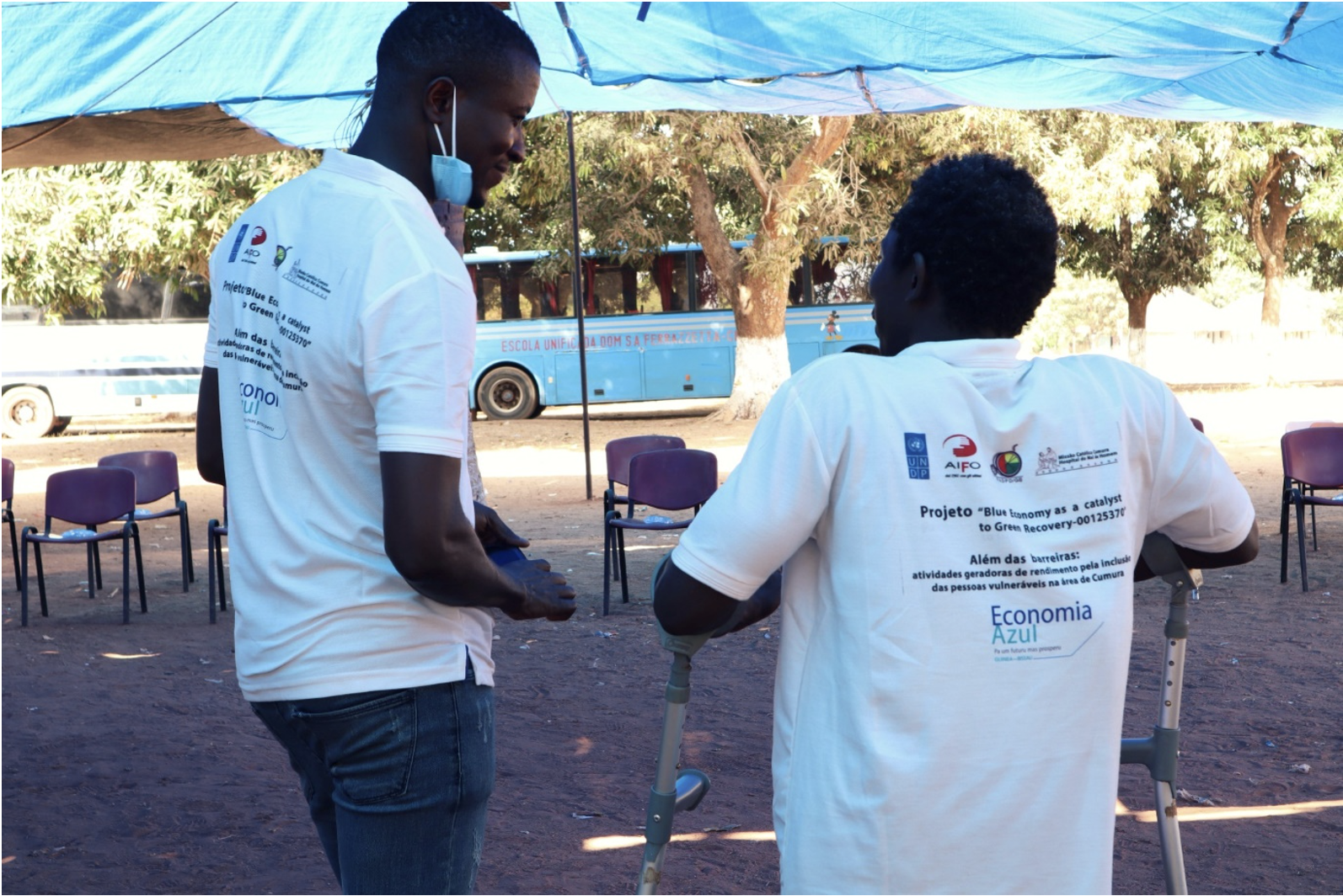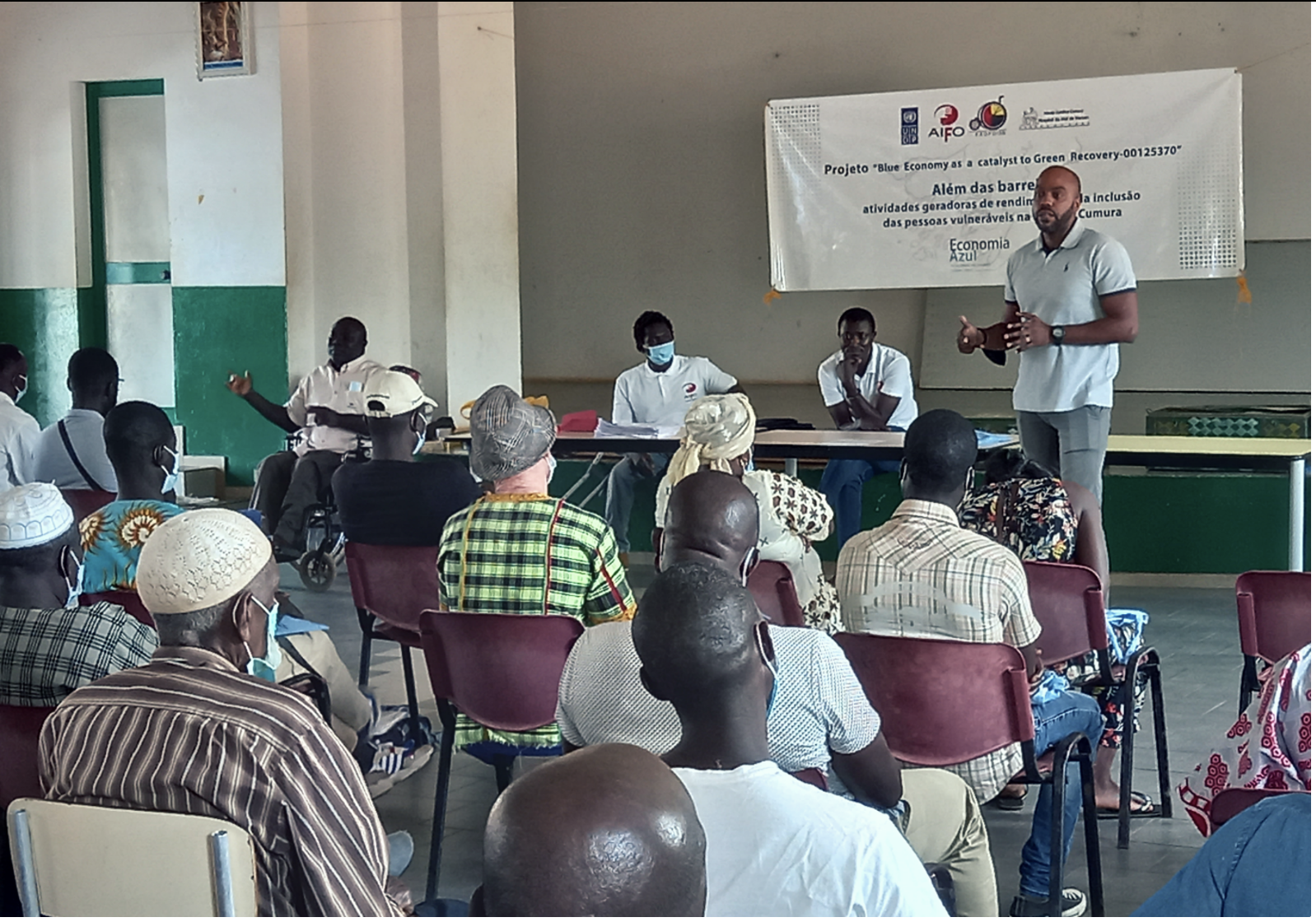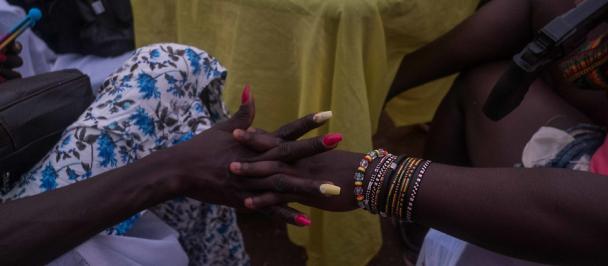Photo: UNDP, 2022
When Saido Embaló speaks, his words convey the will to continue a struggle that has never really stopped. He has a motor impairment that has conditioned his life in a country, Guinea-Bissau, where care for people with disabilities is still an unresolved issue. From his position as Executive Secretary of the Federation of Associations for the Defence and Promotion of the Rights of People with Disabilities in Guinea-Bissau (FADPD/GB), he works on awareness-raising and advocacy to ensure that information about the International Convention on the Rights of Persons with Disabilities that the country signed in 2014 reaches everyone. “Ignorance of the Convention complicates things, because when we talk about rights people are not aware of what we are talking about, so we aim to make visible the problems that people with disabilities are facing”.
According to the Federation’s experience, the family is one of the main barriers. Paula Saad, Director General of Social Inclusion, shares this vision. “Discrimination starts at home when families do not send their children to school. Every contribution is important for the growth of society and disability is just a specific limitation”. This discrimination is even more pronounced in the case of women. “They suffer double discrimination: for being women and for being disabled, so they need to be supported and empowered to be autonomous”, Saido said. And that’s precisely the goal of the project that UNDP Guinea-Bissau is implementing together with the Italian NGO AIFO and with funding from the financial inclusion and blue economy programmes in Cumura, in the Biombo region. This is the second smallest region in the country, behind the Autonomous Sector of Bissau, and 75.4% of its 90,000 inhabitants are considered vulnerable. Trying to activate a sustainable path for the vulnerable women by creating income-generating activities which contribute to their economic independence and financial inclusion is at the heart of the efforts of an intervention that FADPD/GB is also supporting on the ground. “Women with little economic power are so dependent on their husbands that their rights end up being violated. To reduce dependency is to reduce this violation”, said Lázaro Barbosa, President of the organisation.
Photo: UNDP, 2022
But despite the vulnerabilities, Biombo has a lot of potential in terms of forest and marine resources. “The sea is so close here that the blue economy offers many opportunities. The connection to the sector already exists, because there are men who live from fishing activities and women who sell their fish, but there are even more possibilities related to the blue economy that can be exploited in an environmentally friendly manner”, Embaló reflects, “and people with disabilities can definitely contribute to preservation through the rational use of natural resources”. By the end of the project, 12 micro-enterprises linked to the blue economy will have been set up in the region, and more than 90 people will have received training on "Business and marketing model for the blue economy". The project is just a starting motor to bring together financial and social inclusion by including women with disabilities not only in their local communities but also in their country, always considering that they are the pillar of their households and so their empowerment means the growth of families as well. "People have to take risks and they also have to understand themselves to be ready to open up to things. To express the self in an autonomous way is the ultimate objective and we all have the power of change, so the project wants to encourage that power in the women who will be starting their businesses."
At national level, the biggest challenge is an inclusive policy to guide and regulate in this direction. The Ministry of Women, Family and Social Solidarity has just prepared a National Strategy for the Inclusion of People with Disabilities pending approval, which will work as guidance on how to deal with disability. “It is a great advance for Guinea-Bissau and the goal is to make it part of the government programme so that all institutions are prepared. In the absence of legislation, we are working on the strategies”, Paula Saad explains. There are several axes of action foreseen in the strategy: accessibility, health, education, sports and culture, justice, and human rights. A Multisectoral Technical Committee for Monitoring Inclusive Public Policies, of which UNDP is a member together with other UN agencies such as WFP and UNICEF, oversees coordinating the implementation of the different actions foreseen in each axis to remove the barriers that prevent people with disabilities from exercising their rights independently. Leave no one behind is, once again, the commitment guiding both the participation of UNDP in the Committee and an intervention in the field focused on the fight against discrimination to contribute to the sustainable development of Guinea-Bissau.

 Locations
Locations


